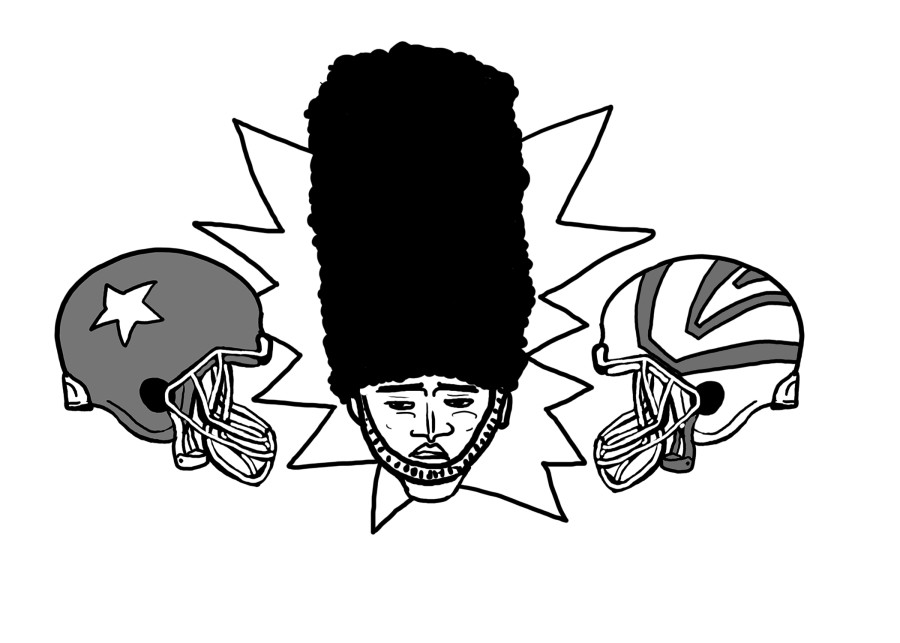
Andy: Out of 119 Football Bowl Subdivision head coaches in college football, only four of them are coaches of color. That’s a statistic that’s come under fire since the end of the 2008 college football season and most recently, the Oregon House passed a bill that would address this concern.
The Oregon bill: modeled after the NFL’s “Rooney Rule,” which has jumped the percentage of minority head coaches in the league to around 25 percent, while two of the last three super bowl winning head coaches have been African-American: requires teams to interview at least one qualified minority candidates for any coaching or athletic director positions. The bill applies to all state universities in Oregon and would be the first of its kind if implemented. Both the senate and the governor still have to review it.
Ideally, these types of bills wouldn’t have to be passed, but clearly, NCAA football programs are not equal opportunity employers. While there’s a shortage of minority head coaches, there is also a serious shortage of minority offensive or defensive coordinators, which are the positions from which colleges often look for future head coaches. This stifles any chance for a minority candidate to take the next step up to head coach.
Recently, there’s been a trend for some teams to name a “coach-in-waiting,” which is often one of the team’s current coordinators. Florida State University and the University of Oregon are two examples of schools that have employed this process in the last few years. On the surface, this appears logical in that universities want to be sure to hold onto quality coordinators so other universities don’t hire them away. However, considering the serious lack of minority offensive and defensive coordinators in college football, this trend reproduces the status quo, which is horribly unequal.
A system that requires universities to interview minority candidates might not prevent a college from hiring a white coach that they really like, nor should it necessarily, but it can help the minority coach find a job somewhere else. During the hiring process, a lot of universities will pass on the names of candidates that they really liked to other schools looking for head coaches. Therefore if schools are forced to search for qualified minority candidates that they might have not bothered to look at before, then that could bring that coach on the radar screen for another college.
If still unconvinced that a bill like Oregon’s is not necessary, look no further than the 100-percent white coaching staff at Whitman.
Billy: I would like to ask Athletic Director Dean Snider and President Bridges why in fact Whitman has no minority head coaches. This question is not rhetorical. Rather, it brings up the other side of the argument. Schools and professional teams may be open to coaches of any race but have trouble attracting a minority candidate for a certain position at the time they are conducting interviews. Also, schools located in more racially diverse geographic regions will likely have an easier time finding minority candidates. Lastly, what if a school or franchise already knows it really wants to hire a certain candidate, but he or she happens to be white? Are they supposed to interview minority coaches just to tell them they did not get the job?
In 2003, the Detroit Lions filled their head coaching vacancy by hiring Steve Marriucci, who is white, without interviewing any other candidates. The NFL fined then-general manager Matt Millen $200,000 for violating the Rooney Rule. Millen claimed he offered interviews to several minorities, all of whom declined the opportunity. As you can see, a team can try to follow the rule, but it doesn’t always have control over the availability of minority candidates.
Still, I would argue that the NFL should continue to enforce the Rooney Rule and that college sports should adopt a similar one. If a league is serious about enacting a certain change, it cannot always be fair to all the parties involved. After all, to be fair (to all candidates) may require the league to be unfair (to employers). If the NCAA or state legislatures take their time to make the perfect rule that appeases everyone, the four minority coaches in the FBS may remain the only four for a while.
But if we define racism as a feeling that one’s race has inherent qualities that are superior to another race’s, then schools that tend to hire only white coaches do not necessarily do so because they are blatantly racist. Employers may not realize they have preconceived notions about race ingrained in their minds. In other words, a white general manager might be inclined to think that black coaches are less qualified even though he still treats them with respect.
Because the competitive nature of sports lends itself to discrimination, it is especially important for sports leagues and governing associations to enforce rules that encourage equal opportunities. Sports are competition. The whole point of a game or match is for teams or individuals to show they are superior to their opponent. There is even competition within teams when players try to win playing time. The competitive nature of sports is related to the race issue because it encourages athletes and coaches to want to believe they are the best. Assuring yourself that you are better than your competitor because of race is a convenient way to confirm this belief.
This competitive mentality brings me to my final point. The NFL cannot assume that the Rooney Rule alone will create racial diversity. A team will not hire a minority coach because it stumbled upon a token minority candidate that it actually likes. Rather, the coaching ranks will only see more diversity once individual GMs and athletic directors personally push aside the notion that one side or color must be better than the other.








